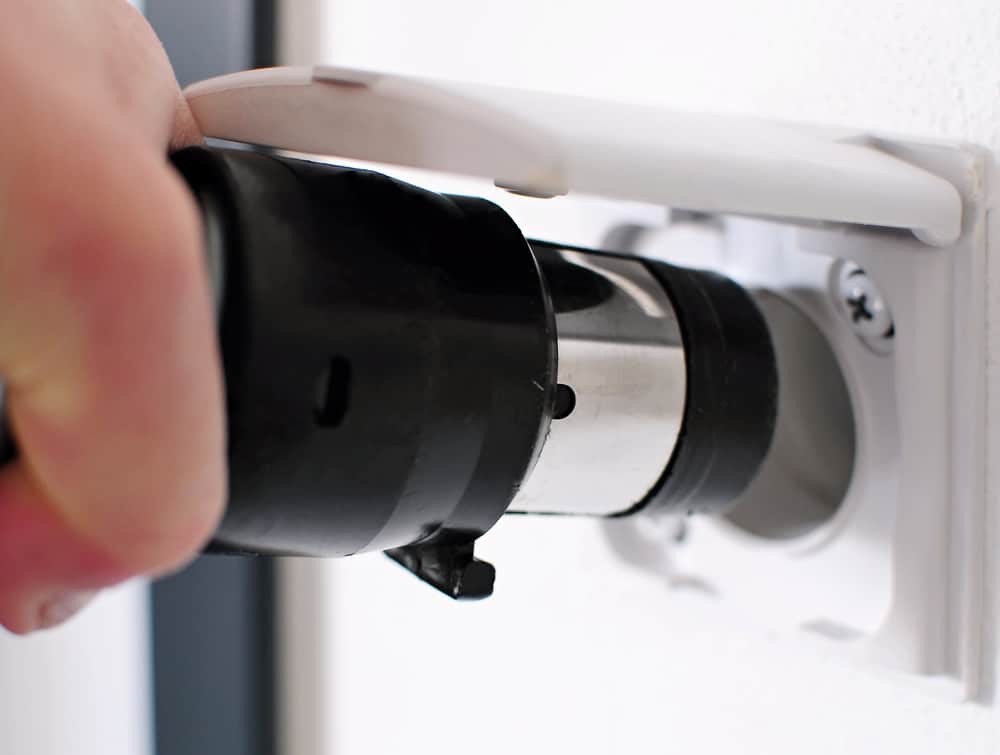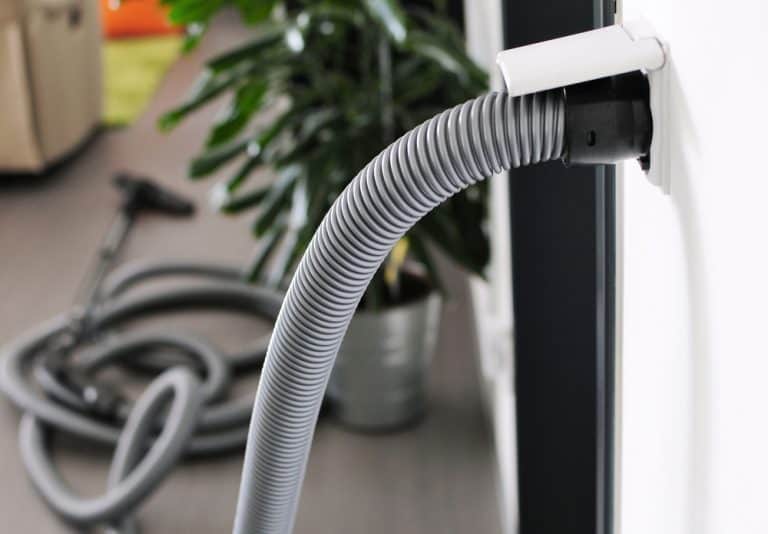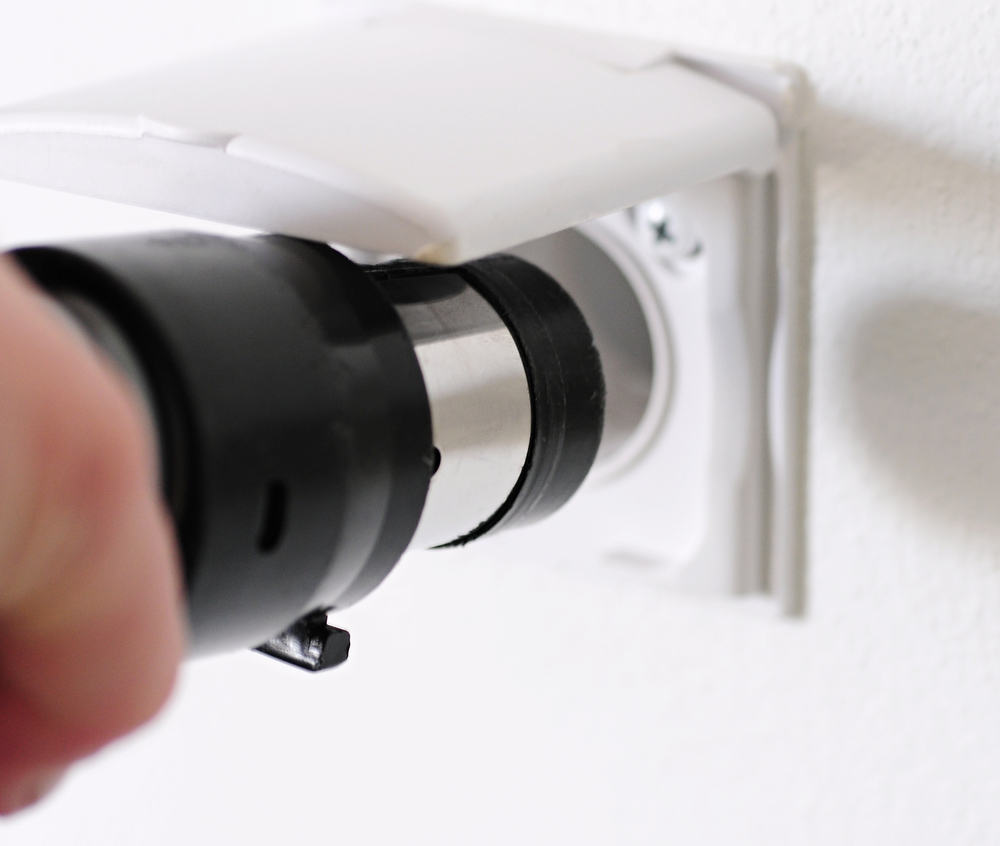Central Vacuum in Wantagh, NY.
Customized maintenance services to ensure your central vacuum system remains in peak condition.











Are you looking to maximize your cleaning power? Are you tired of breathing in dander, dust, and other indoor air pollutants? Do you dread the idea of pulling out your portable vacuum cleaner because you know you’re going to end up getting frustrated or injured within moments of starting it up? If you said ‘yes’ to any of these questions, then it’s definitely time that you consider central vacuum installation.
DuraVac, the Nassau County central vacuum specialists, are highly skilled in both residential and commercial central vacuums and will install a new unit for you in no time!

Why Residential and Commercial Vacuums?
Why should you consider installing a central vac in your home or business? Consider the following benefits that central vacuum systems offer:
Convenience
Vacuuming is one of the most important chores, but for most people, it’s also one of the most dreaded. The idea of wrestling with a bulky and heavy upright or canister vacuum cleaner and having to constantly search for new outlets to plug the machine into isn’t exactly appealing. With a central vacuum system, you won’t have to worry about those hassles anymore! Just pull out a lightweight hose, connect it to an inlet valve that’s built directly into the wall, and you’re ready to go! Central vacuums make vacuuming extremely convenient, and some might say even enjoyable.
Efficiency
Standard portable vacuum cleaners don’t do the most thorough job. No matter how high-end the machine may be and what type of filters and attachments it features, it just can’t offer the level of clean you expect. These units recycle air back into your home or business, and with it, the dirt, debris, and allergens they pick up, which can lead to upper respiratory problems. Not only do they leave the air dirty, but canister and upright vacuums can’t access all those hard-to-reach corners. The cords never seem long enough to reach a power outlet and every surface of your home. You won’t have those problems with a central vacuum.
Central vacuums actually remove all dirt, debris, and allergens because, unlike standard machines, which filter air back inside, central vacs exhaust outside. Plus, there aren’t any power cords or outlets to worry about plugging into; the lightweight hoses are long enough to reach every nook and cranny in your home or business. Better indoor air quality and cleaner surfaces; it’s no wonder why central vacuums clean so much more efficiently.
Less Noise Pollution
Trying to hold a conversation, watch TV, or hold a meeting while a standard vacuum cleaner is running is next to impossible. Because the motors are situated right on the machines, portable vacuums are exceptionally loud; even models that advertise “whisper-quiet operation”.
With a central vacuum, you won’t have to worry about being disturbed by a deafening noise. The power unit is located in a remote location (such as a basement, garage, or utility closet), so there’s no blaring sound to contend with when you’re vacuuming. In fact, the only thing you can hear when a central vacuum is running is the quite “whish” of air and the dirt and debris that travels up the hose.
Savings
The initial cost of a central vacuum system may be more than a portable vacuum; however, you’ll see significant savings over time. Canister and upright vacuums only last for so long and need to be replaced every few years. If you calculate how many vacuums you would purchase over the years, the total will certainly alarm you.
Central vacuum systems, on the other hand, are built to last. As long as they are properly maintained, they can last a lifetime. Compared to the total price of buying multiple portable vacuums, the expense of a new central vacuum installation is a mere fraction of the cost.
Increased Value
Lastly, installing a central vacuum system can increase the value of your property. With all the benefits these cleaning appliances provide, they are highly sought after features. If you ever decide to put your house or business up for sale, you’ll definitely see a return on your investment.
DuraVac: Professional Commercial and Residential Central Vacuum Installation Services in Nassau County
Are your interests piqued? Do you want to learn more about central vacuum systems and the benefits they provide? Interested in setting up an appointment to discuss your options? Contact DuraVac; the leading Wantagh central vacuum installers.

For more than 50 years, Nassau County property owners have been counting on DuraVac for all of their installation needs. Their team of highly trained and exceptionally skilled technicians will help you choose the best central vacuum for your property. They’ll match you up with the right power unit and toolkit to ensure your home or business receives the best possible clean. Whether your property is being constructed or it’s already built, the DuraVac team will install a central vac system for you; in fact, depending on your property, they can have a new system installed in as little as one day!
DuraVac not only installs central vacuums, but they also maintain and repair them. With routine maintenance from their master technicians, you can have confidence knowing your system will always offer the best possible clean. If for any reason, a problem arises, their team’s central vacuum repair services will get the system back up and running in no time.
For Cleaning Power that Can’t be Beat, Contact DuraVac!
If you want your home or business to be as clean as possible, contact DuraVac today to learn more about their central vacuum services. Their associates will gladly answer all of your questions and set you up with an appointment at a time that’s convenient for you to discuss your options. Whenever you’re ready to get your new system installed, their technicians will have the job done In no time.
To learn more, dial 516-822-3060 . A knowledgeable associated is standing by, ready to assist you.
The Wantagh area was inhabited by the Merokee (or Merikoke) tribe of the Metoac Indians prior to the first wave of European settlement in the mid-17th century. The Merokee were part of the greater Montauk tribe that loosely ruled Long Island’s Native Americans. Wantagh was the sachem (chief) of the Merokee tribe in 1647, and was later the grand sachem of the Montauk tribe from 1651 to 1658. The Dutch settlers came east from their New Amsterdam colony, and English settlers came south from Connecticut and Massachusetts settlements. When the English and Dutch settled their competing claims to Long Island in the 1650 treaty conducted in Hartford, the Dutch partition included all lands west of Oyster Bay and thus the Wantagh area. Long Island then was ceded to the Duke of York in 1663-64, but then fell back into Dutch hands after the Dutch regained New York in 1673. The Treaty of Westminster in 1674 settled the land claims once and for all, incorporating Long Island into the now-British colony of New York.
Early settler accounts refer to Wantagh as “Jerusalem”, although earlier accounts refer to the area as “Wantagh”. The creek running north-south through Wantagh, and which has been covered up in many places but is still visible between the Wantagh Parkway and the housing developments west of Wantagh Avenue, was originally the Jerusalem River. The original post office was built in 1837, for Jerusalem, but mail service from Brooklyn began around 1780. The town’s first school was established in 1790. At some time around the 1880s, Jerusalem was renamed Ridgewood, and the town’s original LIRR station was named “Ridgewood Station”. Later, Ridgewood was renamed Wantagh to avoid confusion with another town in New York State with the same name.
Wantagh, NYGeorge Washington rode through Jerusalem on April 21, 1790, as part of his 5-day tour of Long Island. The Daughters of the American Revolution have placed a plaque on Hempstead Turnpike to commemorate Washington’s travels, which took him from Hempstead on Jerusalem Road (now North Jerusalem Road) to Jerusalem, on to Merrick Road. He then went on to head east, then circle back west on the north shore. During the Revolutionary War, British ships traveled up Jones inlet and came ashore to raid Jerusalem farms.
Learn more about Wantagh.